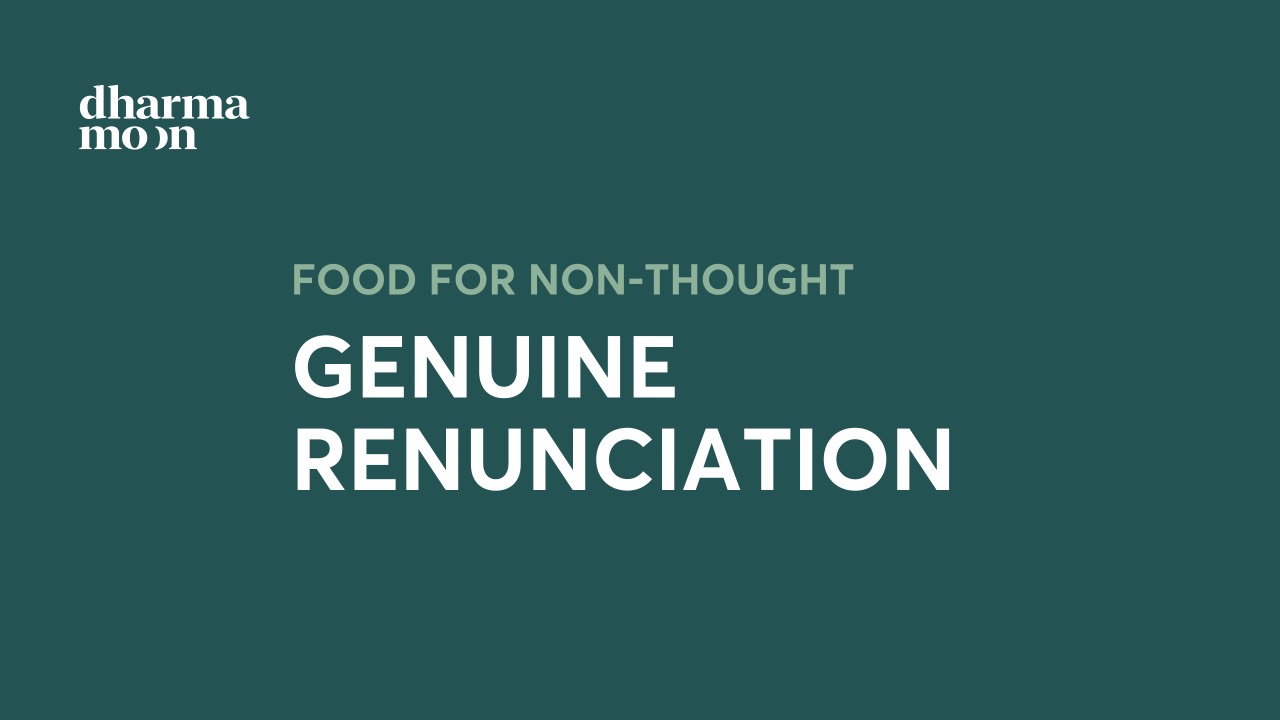Genuine Renunciation

Written by Rebecca D'Onofrio
Real growth starts when we are ready to let go of what doesn’t support our health, happiness, and well being. In Buddhism, we refer to this as “renunciation.” A lot of people misinterpret this as denying personal pleasure or living a squeaky clean life, but that’s not really what this is about.
Genuine renunciation is about first recognizing the negative habits and limiting beliefs that we impose upon ourselves, extending compassion and empathy toward ourselves, then making the conscious intentional choice to release these habits and beliefs so we can align with our true nature.
In other words, what we are renouncing is the type of self-doubt and negative talk that causes us to contract, close down, and hide from our life; and what we are opening up to is a sense of authenticity and confidence.
But it isn’t an arrogant “pumped up” type of confidence — the flimsy kind we use to shield ourselves from vulnerability — it is a natural self-existing confidence that is based on the understanding that we already are and always have been good, worthy, wholesome, and fundamentally capable beings, from the very beginning, before these negative habits and beliefs took their hold on us. Because we are in contact with this fundamental truth, we discover that we can in fact afford to relax, let go, and open ourselves further because our sense of self-worth and value is no longer based on anything outside of ourselves.
Renunciation is about coming back home to ourselves, bringing all the fragmented pieces of our mind, body, and heart back together, reclaiming our sense of worth that is beyond conditions, beyond judgment or bias, beyond what anyone else might think or say. From this place, we can actually enjoy and appreciate our lives much more. We’re more inclined to take chances, to try new things, and see what happens. What do we have to lose when we have our own backs?
But none of this is possible when we confine ourselves to the seeming comfort and safety of self-doubt and insecurity. None of this is possible if we give in to other people’s narratives or allow external circumstances to define and dictate who we are and what we’re capable of. We renounce this way of being because it depletes our energy and life force — it is like taking the posture of a wilted flower. That’s why in mindfulness practice we always start by taking a strong uplifted posture, allowing ourselves to arrive in the moment with our dignity, power, and presence intact.
So you can think of renunciation as the process of becoming our own friend, learning how to treat ourselves like an ally and not an enemy, and aligning with our true nature to become who we really are.
